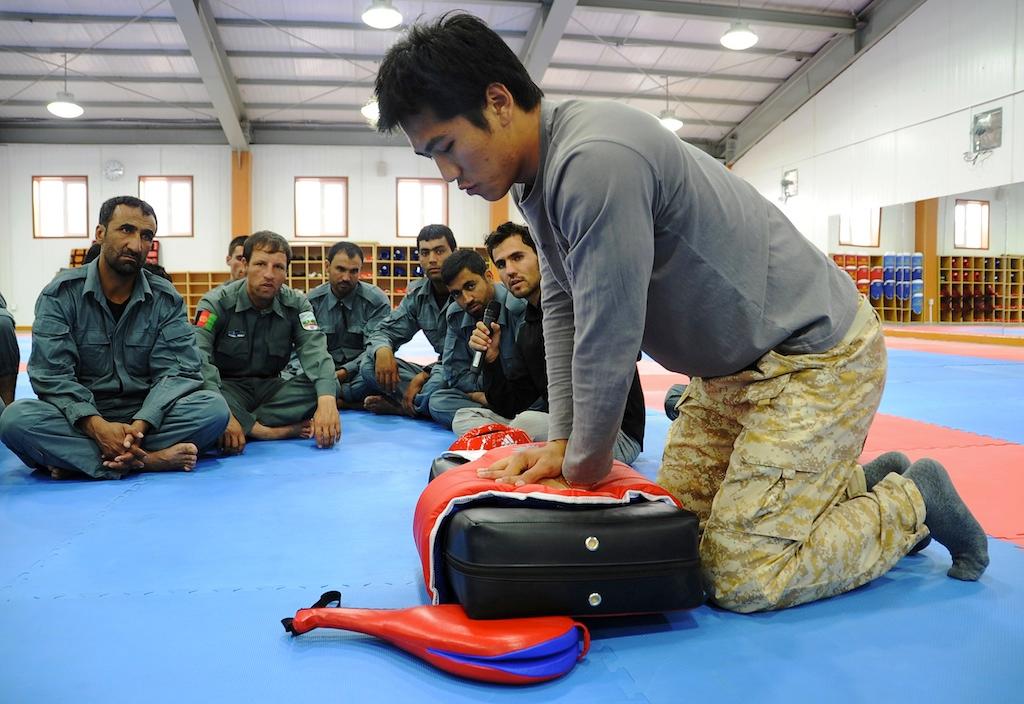Australian man dead for 40 minutes revived with new CPR machine AutoPulse
A South Korean policeman shows Afghan policemen how to do CPR at the Afghan National Police training centre in Pawan on October 2, 2012.
In an Australian first, doctors have used a new resuscitation technique to revive three patients who were clinically dead for up to an hour.
One of the lucky survivors was Colin Fiedler, 49, who was pronounced dead at The Alfred Hospital in Melbourne, Victoria, after suffering a heart attack, The Herald Sun reported.
Doctors brought Fieldler back to life using a U.S.-made cardiopulmonary resuscitation machine called the “AutoPulse” to perform continuous chest compressions, and another machine to pump blood and oxygen to his brain and other vital organs.
Seven cardiac patients were treated with the new machine – three survived with no brain injury.
Though the machine was commercialized in the U.S. in 2003, it is only now being tested in Australia. The Alfred Hospital is the only hospital in Australia to use the AutoPulse, but doctors hope that given the success of clinical trials it will be made available in more emergency rooms.
US company Zoll, which makes the AutoPulse, said the machine was a “non-invasive, cardiac support pump” that moves more blood through the body than manual compressions.
“Victims receive more consistent, high-quality compressions than those delivered by simple automated CPR devices, which means improved blood flow,” Zoll said.
The U.S. National Center for Biotechnology Information said a fairly recent study on the effectiveness of the AutoPulse on out-of-hospital heart attack patients showed the machine had a "promising" future.
Researchers found that the 29 patients who participated in the study received more diastolic blood pressure with the machine than they would have with manual compressions.
The story you just read is accessible and free to all because thousands of listeners and readers contribute to our nonprofit newsroom. We go deep to bring you the human-centered international reporting that you know you can trust. To do this work and to do it well, we rely on the support of our listeners. If you appreciated our coverage this year, if there was a story that made you pause or a song that moved you, would you consider making a gift to sustain our work through 2024 and beyond?
